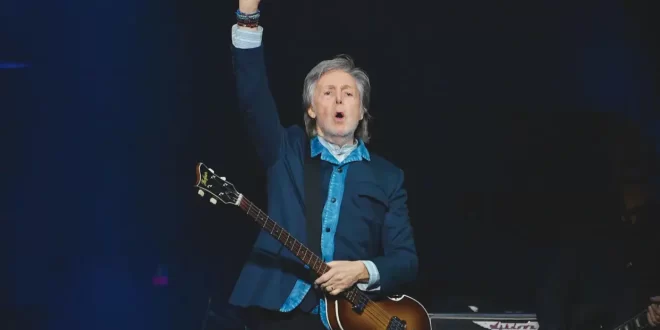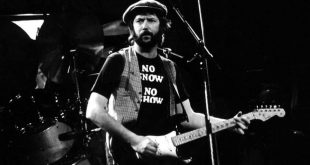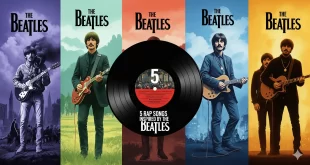Paul McCartney’s favourite songs may not include the usual critically acclaimed suspects like Like a Rolling Stone, but when one of the greatest songwriters in history reveals his personal picks, it’s worth paying attention.
In 2004, McCartney shared a list of his 14 favourite songs of all time in an Uncut feature. Years later, the list still fascinates fans — not just for its diversity, but for what it reveals about McCartney’s own songwriting approach.
When you break these songs down, each one offers a clue to the elements McCartney values most — from arrangement and imagery to exotic influences and pure beauty.
1. Surprise – “Mean Old Man” by James Taylor (2002)
This track begins as a smooth Sinatra-style ballad before unexpectedly shifting to blues guitar, and then to waltzing jazz piano. The constant changes keep listeners on their toes — something McCartney himself has mastered.
Songwriting lesson: Surprise your audience. Avoid predictability to keep your music fresh.
2. Depth – “God Only Knows” by The Beach Boys (1966)
McCartney’s all-time favourite song. Brian Wilson’s masterpiece is rich in emotional and musical layers, even called the first “keyless pop song.”
Songwriting lesson: Explore your ideas deeply. The more layers you build, the more timeless your song can become.
3. Traditionalism – “Chance Meeting” by Chinmaya Dunster & Vidroha Jamie (1998)
A Celtic raga that nods to McCartney’s Irish roots, reminding us how The Beatles balanced innovation with respect for musical history.
Songwriting lesson: Look to the past to inspire the present.
4. Exoticism – “Sunset” by Nitin Sawhney (2001)
A blend of electronica, Indian classical, and jazz. Much like The Beatles’ use of the sitar, it expands musical horizons.
Songwriting lesson: Incorporate sounds and instruments outside your comfort zone.
5. Arrangement – “The Very Thought of You” by Nat King Cole (1958)
This romantic ballad is a masterclass in restraint, pairing melody with the perfect instrumentation — something McCartney echoed in Yesterday.
Songwriting lesson: Arrangement is as important as melody.
6. Beauty – “Nocturne No. 2 in E Flat Major” by Maria João Pires (1996)
A pure, timeless recital that captures effortless beauty, reminding McCartney of music’s universal appeal.
Songwriting lesson: Understand beauty before experimenting with dissonance.
7. Meaning – “Going Somewhere” by Colin Hay (2001)
A song that reflects life’s pace and meaning, similar to McCartney’s Here Today.
Songwriting lesson: Songs with personal meaning connect deeply with listeners.
8. Texture – “Carried” by Steadman (2003)
Layered instrumentation and unique effects create a distinct sonic landscape, reminiscent of Radiohead’s sound.
Songwriting lesson: Use texture to build atmosphere and emotion.
9. Skill – “Galliard” by The Julian Bream Consort (1963)
A showcase of technical mastery in guitar finger-picking, much like McCartney’s own basslines.
Songwriting lesson: Show your musicianship — but only when it serves the song.
10. Connection – “Marwa Blues” by George Harrison (2002)
Not Harrison’s most famous work, but it resonated spiritually with McCartney.
Songwriting lesson: A song doesn’t have to be a “masterpiece” to connect.
11. Marketability – “The Way” by Glenn Aitken (2010)
Though critically divisive, McCartney supported this track to help Aitken reach an audience.
Songwriting lesson: Great songs need listeners — promotion matters.
12. Imagery – “Sunny Goodge Street” by Donovan (2003)
Rich, poetic imagery transforms everyday scenes into something magical, just as McCartney did with Penny Lane.
Songwriting lesson: Paint pictures with words.
13. Lightness – “Cheek to Cheek” by Fred Astaire (1935)
A reminder that fun, lighthearted music has value alongside deep, experimental tracks.
Songwriting lesson: Don’t overlook the joy of simplicity.
14. Coolness – “A Lovely Way to Spend an Evening” by Frank Sinatra (1944)
Sinatra’s effortless charm proves that style and personality can be as important as melody.
Songwriting lesson: Performance can elevate a song into something iconic.
The Takeaway: McCartney’s Songwriting Formula
From God Only Knows’ deep structure to Cheek to Cheek’s lighthearted charm, McCartney’s 14 favourite songs reveal a broad appreciation for surprise, beauty, tradition, meaning, and connection.
It’s a reminder that great songwriting isn’t just about the notes — it’s about emotion, storytelling, and the art of keeping listeners engaged.






